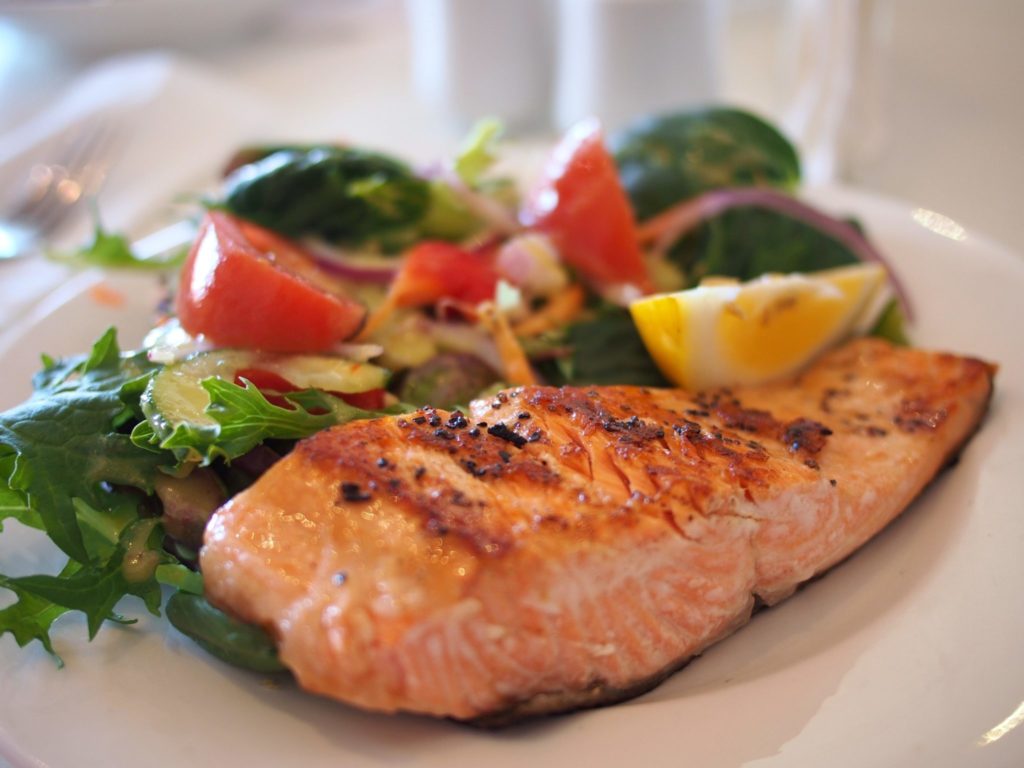A healthy diet is essential for every person, but the dietary servings look different for each child, woman or man. Since men tend to grow larger than women, men need more calories and nutrients to maintain energy and fend off chronic diseases. Along with exercise, stick with these good health practices for a well-balanced diet.
Add Healthier Proteins
Your daily dose of protein helps deliver essential vitamins and minerals to the body as well as supports good bone, muscle and cartilage health. Yet, certain proteins are better than others, and research shows that proteins high in saturated fat, such as red meat or processed meats like bacon, can lead to serious health problems such as high cholesterol and coronary heart disease. Therefore, stick with proteins that are lean, like skinless chicken and turkey, or contain omega-3 fatty acids, like seafood. You can also receive protein from plant-based foods like tofu, tempeh, beans, nuts and seeds.
But high saturated proteins aren’t the only thing to keep on your health radar. To maintain a healthy diet, make sure you stay within the recommended daily amount of protein. For men, the USDA recommends the following:
- 19-30 years old- 6 ½ ounces
- 31-50 years old- 6 ounces
- 51+ years old- 5 ½ ounces
The long term effects of going over the daily protein recommendations can lead to kidney damage, cardiovascular disease and increased cancer risks.
Incorporate Lots of Fruits and Vegetables
We all know that vegetables and fruit are some of the healthiest foods we can eat. They are low-calorie and low-fat, do not contain any cholesterol, and are an excellent source of important nutrients, such as vitamin A, vitamin C, fiber and potassium. In fact, the larger the variety of vegetables and fruit in your diet, the more you reduce your risk for heart disease, high blood pressure and certain cancers.
To meet your daily serving of vegetables, incorporate 2 ½ cups to 3 cups into your diet each day. For fruit, aim for 2 cups each day. Fresh fruit or canned (no sugar added) is recommended!
Stick With Smarter Grains
When grain consumption is done in a healthy way, it can help with weight management and prevent certain diseases. Whole grains are a great source of fiber, which is responsible for keeping us full longer and reducing constipation. Yet, they also contain important nutrients, such as magnesium, folic acids, and vitamin B. However, when whole grains are processed (white bread, white rice, flour-based products), they are stripped away of the outer casing containing all the nutrients, and you are left with a product that when consumed regularly can lead to diseases like obesity and type 2 diabetes.
To maintain a healthy, balanced diet, stick to 6-8 ounces of whole grains like brown/wild rice, barley, oat, quinoa and corn.
Got Nutrition Questions?
We applaud dedication to a healthy diet and lifestyle, but we understand you may have questions along the way. If that’s the case, then our Community Health Center on 5th Street is open to you for any of your health or nutrition questions. Schedule an appointment for a check up or just stop in to learn more about nutrition resources available to you.
